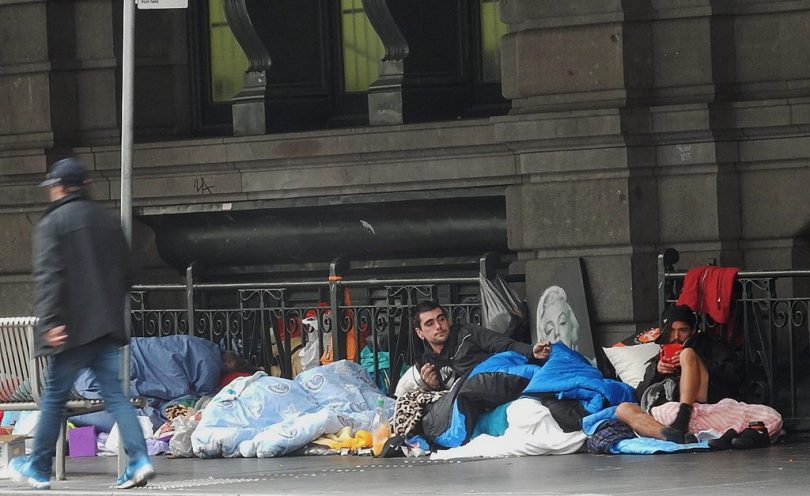Rising property prices, particularly in Melbourne and Sydney, is putting extra strain on people with mental health issues trying to find permanent homes.
[infogram id=”house_prices-9948″ prefix=”a0v” format=”interactive” title=”house prices”]Increased access to safe and affordable housing will be a priority of the National Mental Health Commission, according to its new chairwoman Lucy Brogden.
Previous research from the Australian Institute of Family Studies has found a link between housing stress and mental health, with evidence suggesting better quality housing can improve people’s mental wellbeing.
Mrs Brogden has just been announced as the next Chair of the National Mental Health Commission, after serving as a Commissioner for the independent body over the last three years.
Speaking to ABC radio, Mrs Brogdon said providing housing for the homeless was “part of the operating philosophy” of the Commission.
“We really believe that until people have somewhere that they can feel safe and call home, any other forms of treatment really will never be that effective,” she said.
“There are reports out even today talking about the negative impacts of homelessness on young people and their mental health, so we need to work out how we better invest in stock, [and use] creative ways to find opportunities for better housing.”
She admitted this would be “an absolute challenge”, and required working with a number of key government stakeholders.
“[The] Commission is keen to work with states as well as at the Commonwealth level to look at their policies and strategies around finding extra stock, finding the income support for people and working out what those opportunities might be,” she said.
“We have seen good examples around the country where it is working well. The challenge is to scale it up.”
Dr Lisa Brophy, from Melbourne University’s Centre of Mental Health, agrees that housing is vitally important to supporting people’s mental wellbeing.
“Something that comes from my research [is] that people’s access to safe and affordable housing is actually such an important aspect of people’s mental health,” she said.
“So I think really being able to think more holistically about the needs of people with serious mental health issues is actually very important in terms of people’s recovery.”
Homelessness continues to be a major problem in this country, with around one in 200 Australians homeless on any given night.
It is an issue which especially affects young people, with the highest proportion of homelessness affecting those in the 25-34 and the under 12 age categories.
[infogram id=”homeless_australians_by_age” prefix=”cA8″ format=”interactive” title=”Homeless Australians by age”]With homelessness a nationwide issue, Dr Brophy said the National Mental Health Commission did a great job in offering a national perspective on mental health issues in Australia.
“I think [the Commission] is very important because we do have a very complex system of mental health service providers in Australia,” she said.
“We have both State and Commonwealth mental health service providers and we have different legislation in different states that deals with mental health.
“So the National Mental Health Commission is a very important development, because you do [need] a national perspective.”
The Turnbull government has recognised the Commission’s importance, announcing it will now report directly to the Health Minister, and provide the Prime Minister with six-monthly updates on the government’s mental health reform agenda.
The Commission has also been given an additional $2 million in funding this year, which will help it implement the government’s Fifth National Mental Health and Suicide Prevention Plan (Fifth Plan).
This initiative prioritises a range of improvements in the sector, including the coordination of treatment and support for people with mental illness, and the physical health of people living with mental health issues.
Dr Brophy said there was a strong link between physical health and mental health, which needs to be addressed by the sector.
“We have a significant gap in life expectancy between the general community and people with serious mental health issues,” she said.
“There’s a lot of work currently being done and a lot of discussion about that, but we need to see some results in trying to improve people’s physical health and that may be about supporting people with giving up smoking.”
“[We need to] ensure people are gaining better access to primary health care. And there is more awareness of the potential impact of the marginalisation and social exclusion that people experience and how that’s also impacting on their physical health.”
If you or someone you know is experiencing mental health issues, please contact Lifeline on 13 11 14 or beyondblue on 1300 22 4636








[…] but now just 48% of young Australians do. This also affects the mental health of young people, with a link found between housing uncertainty and mental […]